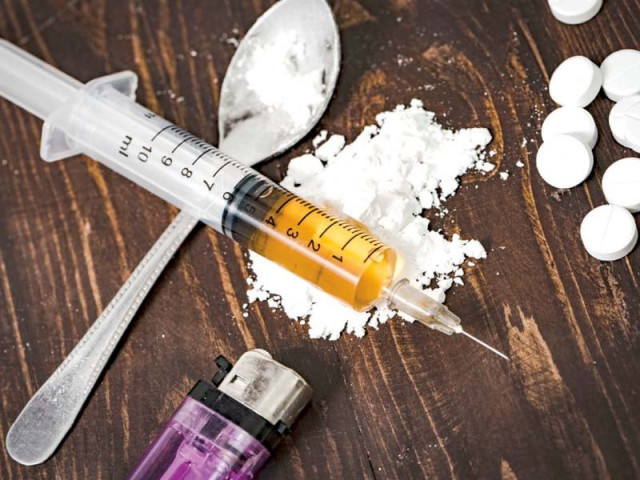Punjab government swings into action to fight drug curse
Province’s Narcotics Control Department drafts new legislation to curb prevalent drug culture

PHOTO: FILE
Furthermore, in a bid to curb the flow of drugs to students and minors, the department has also drafted new, more rigidified laws according to which the imprisonment sentence for any act involving the sale or manufacture of drugs is to be increased across the board. Whereas, the sale of drugs to a teenager or within 500 metres of any educational institute will lead to double the increased sentence and penalty, with no sentence being less than a minimum of seven years.
The Narcotics Control wing was added to the provincial government’s Excise and Taxation department following the 18th Amendment, which allowed for greater provincial autonomy in terms of drug control. In its first attempt at remedying the drug epidemic, the newly established wing drafted the narcotics control law based on existing federal laws, last year. However, the draft, which reportedly failed to include the required initiatives for the youth, was eventually rejected and the wing was directed to produce an updated draft - one which addresses the contemporary challenges around drug control. After that, on the direction of Minister of Excise Hafiz Mumtaz Ahmed and Secretary Excise Wagihullah Kundi the present Punjab Narcotics Control Director General, Chaudary Masoodul Haq prepared the new draft, which amongst other things, suggests establishing a police style force dedicated to dealing with narcotics.
Certain life-saving drugs in short supply
As per section 54 of the Punjab Narcotics Control Act, the Narcotics Control force will be formed under the supervision of a DG level officer, who will have complete jurisdiction over anti-narcotic affairs. The force will have its separate police stations, with the authority to conduct raids, searches, arrests, case registrations and investigations. The force will also have the liberty to consult the Pakistan Penal Code in addition to implementing the sentences written under the new law. The force will initially be formed in Lahore, Faisalabad, Multan and Rawalpindi divisions. The head of every division will be a Deputy Director level officer, while separate assistant directors will be deployed for enforcement of the law in every district.
The new law, under section 45, also advises introducing two separate courts dedicated to dealing with narcotic related proceedings. As per the draft, one of these special courts will seek the services of a district or additional session judge who’ll be responsible for hearing all types of drug related cases. But if the government wants, they can also choose to appoint a lawyer or prosecutor with at least 10 years of experience, as a judge in this court. Whereas, a separate court will be dedicated to dealing with low-profile cases which may lead to a maximum of 2 years of imprisonment. For this court, the government can choose to appoint a lawyer or prosecutor with at least 5 years of advocacy experience.
The government, for the first time, under the new law will focus on establishing free of cost rehabilitation and treatment centers for drug addicts across the province. Further, the law will also authorise the Narcotics Control Department to monitor and investigate the transactions of sale and purchase of drugs and will also have the authority to take the required action in case of any illicit activity.
Published in The Express Tribune, November 12th, 2019.



















COMMENTS
Comments are moderated and generally will be posted if they are on-topic and not abusive.
For more information, please see our Comments FAQ